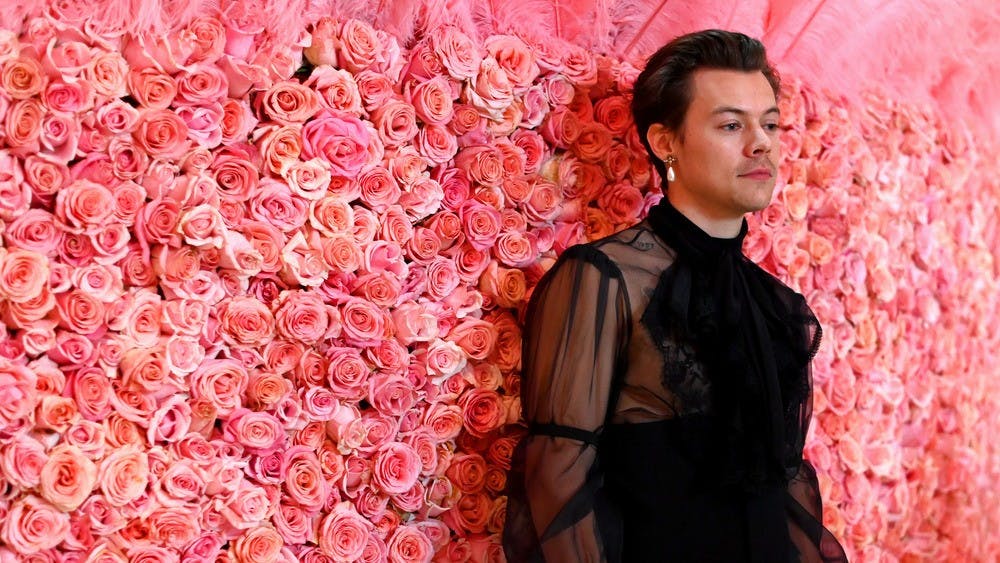Early in November, Harry Styles made history as the first man to have a solo feature on the cover of American Vogue magazine — but he went even further, making history while wearing a dress. There have been many pioneers of crossing clothing boundaries in the past (Prince, Elton John, or David Bowie) but Styles’ historic cover brought the fight for gender-neutral dressing to the forefront of our current cultural debate.
For the most part, Styles’ cover was celebrated as a triumph for breaking gender norms. However, many responded with disgust due to Styles’s feature in a dress. Candace Owens took to her Twitter and commented that “there is no society that can survive without strong men,” insinuating that Harry Styles is “weak” for his appearance in a dress. She then took to her Instagram story, attacking the “woke, leftist, feminist” movement for being too “soft” in response to her comment.
The phrase “bring back manly men” sets our society back years. Men, no matter their assigned sex, should be able to dress how they want. But this is an issue that is bigger than wardrobe. Society perpetuates the idea that men have to be strong or “manly” all the time. The term “manly” already confines men into a box, but this idea actually creates more harm for men themselves.
According to the National Institute of Mental Health, men with any diagnosed mental illnesses are also less likely to have received mental health treatment than women in the past year. Yet the suicide rate for men is higher than women. Men are less likely to seek out mental health solutions because it is deemed “weak” by our society. This should not be the case; everyone should be able to feel comfortable with seeking help. Instead, there are different behaviors that many men are raised with, including suppressing emotions, showing dominance, and maintaining “hardness.”
Annually, the Movember Foundation organizes a “no-shave November” challenge, raising awareness for men’s health issues, including mental health. Growing hair, often a sign of masculinity, raises awareness for their foundation that puts on emphasis on seeking help. This is a small step toward a much greater goal of changing the stigma of men’s mental health.
Though it does not seem to correlate, enforcing gender norms in clothes contributes to the larger problem of male mental health awareness. Stating that human civilization is relying on “manly” men to dress in clothes enforcing gender norms perpetuates a conformity that directly contributes to the decline of men’s mental health. Continuing this toxic rhetoric enforces this cycle, resulting only in harm. It is important for Princeton students to put an emphasis on erasing harmful language as well, especially if we want to evolve as a progressive University.
Our society has put an extreme emphasis on mental health in recent years. If we want to truly change the stigmatization of mental health, it needs to start with the elimination of gendered and confining language. In order to progress, we need to eliminate the idea of “manly men” who don’t feel emotions and put an emphasis on straying away from putting others down. Candace Owens — asking for “manly men” only perpetuates the culture of harm and sadness.
Maisie McPherson is a sophomore from Dana Point, Calif. She can be reached at maisiem@princeton.edu.








